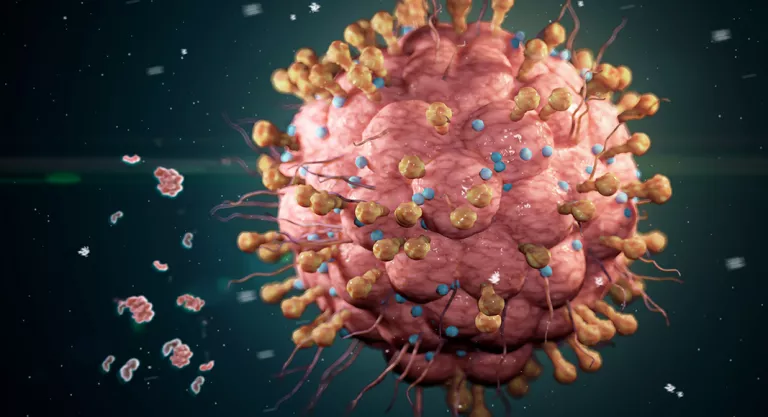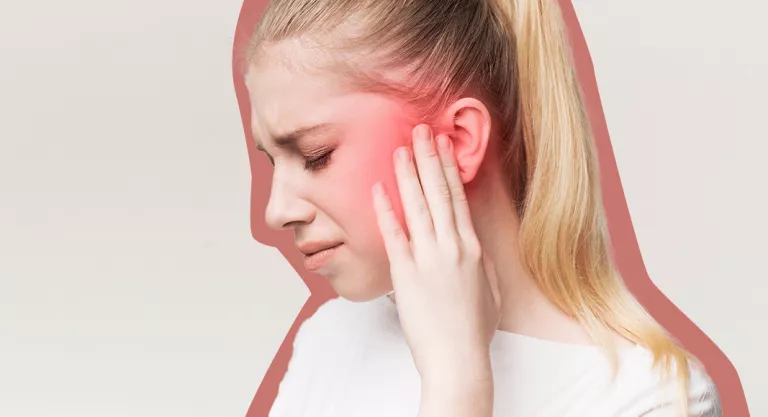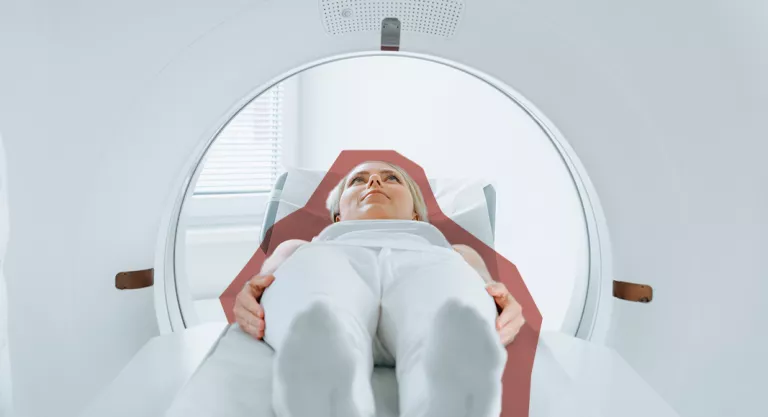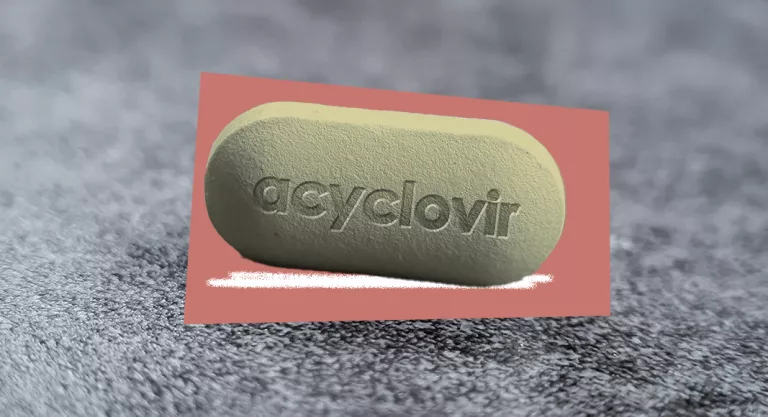A few days ago, Canadian singer Justin Bieber surprised his millions of fans on Instagram by confessing in a video that he suffered from a strange facial paralysis caused by Ramsay Hunt syndrome. We explain what it is, what it is due to, what symptoms it causes and how this condition, also known as herpes zoster oticus, is treated.
What is Ramsay Hunt syndrome?
Ramsay Hunt syndrome is an infection of a facial nerve. It is a neurological disorder in which the Varicella zoster virus infects specific nerves in the head. This condition is also known as herpes zoster oticus.
The Varicella zoster virus can also cause chickenpox. Thus, people who have had chickenpox carry the latent virus in their nerves. Some years later it can become active again, infecting the facial nerve and causing Ramsay Hunt syndrome.

The condition involves a painful skin rash and weakness of the facial muscles, which is sometimes mistaken for a stroke.
Ramsay Hunt syndrome is usually treated effectively, but some people may have permanent facial muscle weakness and hearing loss. The risk of complications decreases significantly with prompt and proper treatment. The longer a person has to wait for treatment, the less chance they have of making a full recovery.

The Office of Rare Diseases classifies Ramsay Hunt Syndrome as a rare disease, with an incidence of about 5 affected out of every 100,000 people in the United States. The reality is that most physicians will never encounter a case of Ramsay Hunt syndrome during their careers.
Symptoms of Ramsay Hunt syndrome
Signs and symptoms of Ramsay Hunt syndrome include:
Risk factors for herpes zoster oticus
People over the age of 60 who have already had chickenpox are at higher risk of developing this syndrome than other age groups. Ramsay Hunt syndrome is known to affect children in extremely rare cases.
Ramsay Hunt syndrome is not contagious, but a person with the condition can spread chickenpox to people who have never had the disease before.

People with Ramsay Hunt syndrome should wait until the blisters crust over before being in contact with people with weakened immune systems, those who have never had chickenpox, infants, and pregnant mothers.
Ramsay Hunt complications
Complications are rare if treatment begins within a few days of the onset of symptoms. However, a small percentage of patients may experience permanent hearing loss and facial weakness even if their treatment was applied quickly and effectively.
If treatment is delayed, there is a risk of losing facial movement permanently, as well as uncontrolled movements such as blinking. Some people may find it difficult to close one eye, which can eventually damage the cornea, leading to eye pain and vision problems.
Some patients may experience pain long after other symptoms have disappeared, in a condition known as postherpetic neuralgia.

The virus can spread to other nerves, such as the brain and spinal cord, causing confusion, lethargy, back pain, weakness in the arms and legs, and headaches. In such cases, the patient may require a lumbar puncture to determine which areas of the nervous system have been infected.
Diagnosis of Ramsay Hunt syndrome
A doctor is likely to make a diagnosis if the hallmarks of facial weakness and a blister-like rash are noted. A nerve conduction study may be performed to determine the extent of damage to the facial nerve, as well as define the likelihood of recovery.
Ramsay Hunt syndrome is commonly misdiagnosed, as many doctors have never encountered this condition.
A sample of the fluid in one of the blisters in the ear can be taken to confirm the diagnosis. The doctor may also use a tear or blood sample.
An imaging scan, such as an MRI, can reveal swelling of the facial nerves. The scans can also help the doctor determine if the virus has reached the brain or other nerves.
Ramsey Hunt Syndrome Treatment
Early treatment improves the chance of a full recovery. The doctor will likely prescribe the patient an antiviral medication, such as acyclovir (Zovirax), famciclovir (Famvir), or valacyclovir (Valtrex), as well as a corticosteroid for inflammation and pain. The patient may have to take diazepam (Valium) for vertigo symptoms.
If facial weakness persists after completing medical treatment, your doctor may recommend physical therapy to help regain proper use of your facial muscles.

An upper eyelid injection of botulinum toxin type A, better known as Botox, can help those who have trouble closing one eye. An eye patch can help protect the affected eye.
Recovery of the Ramsey Hunt
Patients can take anywhere from a few weeks to several months to recover from Ramsay Hunt syndrome. If treatment is delayed and nerve damage is severe, a full recovery is much less likely.
Successful recovery from Ramsay Hunt syndrome depends on recognizing and treating symptoms within the first few days. Therefore, the best way to ensure the fullest recovery possible is to take the drugs acyclovir and prednisolone within 7 days of the onset of symptoms.
The damage caused by Ramsay Hunt syndrome is reversible.
Original article: What’s to know about Ramsay Hunt syndrome? (Medical News Today) Written by Adam Felman; medically reviewed by Dr. Alana Biggers, an expert in internal medicine
.















